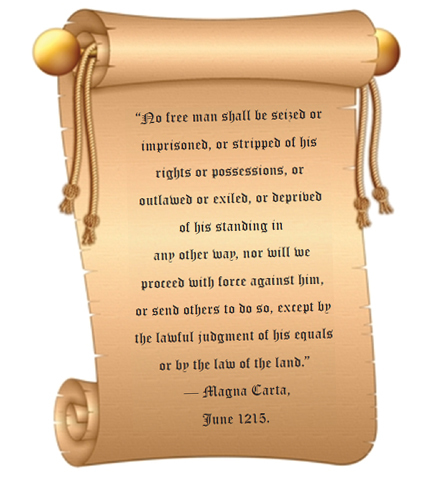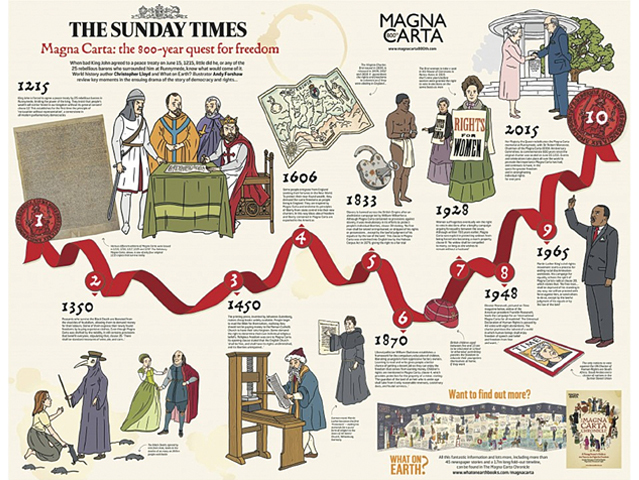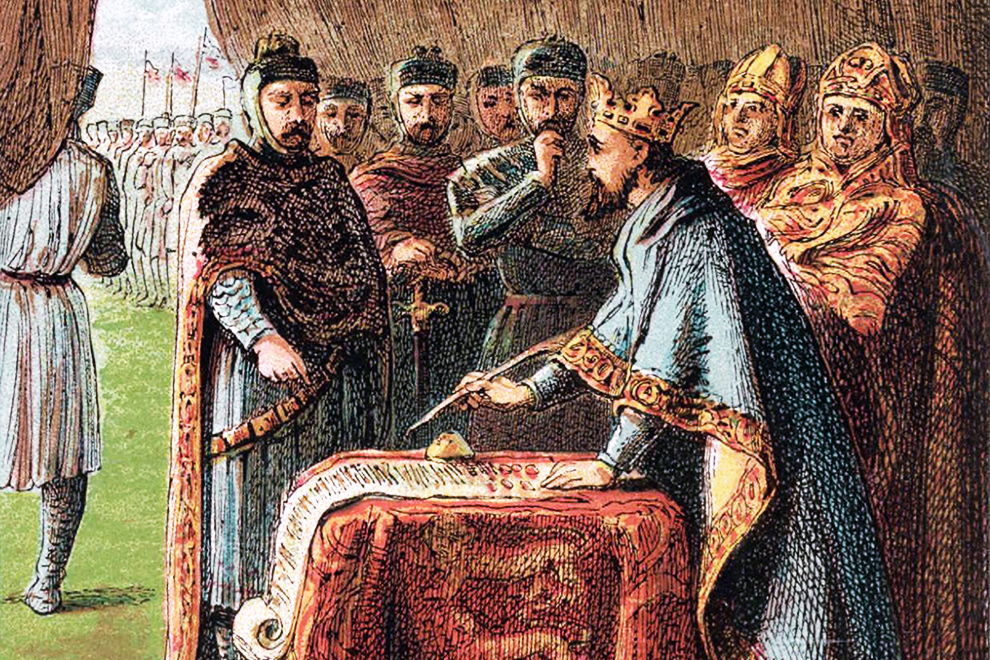Magna Carta: Britain’s Long Route to Democracy
Ishtiaq Ahmed
Bradford: Britain is widely regarded as the “mother of all democracies,” influencing the development of democratic systems worldwide, regardless of their form or structure.
It has taken Britain over 800 years to reach where it is now and the work is still in progress with the ever changing complexion of British society and the world around it.
The journey toward democracy in Britain began in 1215 with the Magna Carta, the first document to establish the principle that the king and his government were not above the law.
The Magna Carta (“Great Charter”) was a royal charter of rights agreed upon by King John of England at Runnymede, near Windsor, on June 15, 1215.
It granted rights and liberties to individuals and groups, providing a constitutional framework for democracy by limiting the monarchy’s powers and recognising the law as an independent authority.
In 2015, the UK commemorated 800 years since the Magna Carta’s inception.

Historical Provisions
Magna Carta Libertatum (“Great Charter of Freedoms”) was drafted by Cardinal Stephen Langton, the Archbishop of Canterbury, in an attempt to broker peace between the unpopular King John and a group of rebel barons.
These barons demanded a confirmation of the Charter of Liberties, which protected the rights of the church, shielded barons from unlawful imprisonment, guaranteed access to swift and impartial justice, and limited feudal payments to the Crown.
A council of 25 barons was tasked with ensuring its implementation. However, neither side honoured their commitments, and Pope Innocent III annulled the charter, prompting the First Barons’ War.
Following King John’s death, his son Henry III’s regency government reissued a revised version of the charter in 1216, omitting some of its more radical clauses to gain political support.
In 1217, the charter became part of the peace treaty at Lambeth, where it was named “Magna Carta”. Henry reissued the charter again in 1225 in exchange for new taxes, and his son, Edward I, confirmed it as part of England’s statute law in 1297.
Legacy and Evolution
Although Magna Carta was not unique—other contemporary documents in England and beyond addressed similar rights and limitations—it became integral to English political life, with successive monarchs typically renewing it. Over time, as England’s Parliament gained legislative authority, Magna Carta’s practical significance diminished. A poster illustrating the timeline of the Magna Carta – Courtesy The Sunday Times
A poster illustrating the timeline of the Magna Carta – Courtesy The Sunday Times
Interest in Magna Carta resurged during the late 16th century. Lawyers and historians, such as Sir Edward Coke, championed it as a foundation for parliamentary power and legal principles like habeas corpus.
During the early 17th century, Coke invoked Magna Carta to challenge the doctrine of the divine right of kings, opposing monarchs like James I and Charles I, who sought to suppress its discussion. This mythologised view of Magna Carta also influenced the American colonists in the Thirteen Colonies, shaping the United States Constitution.
Reassessment by Historians
Victorian historians revealed that the original 1215 Magna Carta primarily addressed the medieval relationship between the monarchy and the barons, rather than the rights of ordinary people. Most modern historians now view the portrayal of Magna Carta as a universal charter of liberties as a later invention.
Despite this, its symbolic power endures. Almost all of its original clauses were repealed in the 19th and 20th centuries, yet it remains an iconic document. In 1956, Lord Denning described it as “the greatest constitutional document of all time—the foundation of the freedom of the individual against the arbitrary authority of the despot.”
Modern Significance
Four original copies of the 1215 Magna Carta survive today: two are housed in the British Library, and one each in Lincoln Castle and Salisbury Cathedral.
Although the original 1215 charter is no longer legally binding, four clauses from the 1297 reissue remain part of English law. These include provisions establishing the principle that British citizens have basic rights that cannot be arbitrarily taken away.

Magna Carta’s legacy lies in its foundational principles of the rule of law, individual freedom, and human rights—concepts that remain central to modern democratic societies.While Britain has not always fully realised these ideals, they provide a solid framework for equality and justice.
Magna Carta also underscores the balance of power between elected representatives and the monarchy, which today is largely ceremonial but still influential.
Enduring Principles
The enduring significance of Magna Carta is captured in its assertion that the law applies equally to the king and his subjects. While the idea of a “law of the land” independent of the king’s will existed before 1215, Magna Carta gave this concept its first clear written expression. Its most famous clauses state:
“No free man shall be seized, imprisoned, dispossessed, outlawed, exiled or ruined in any way, nor in any way proceeded against, except by the lawful judgment of his peers and the law of the land.”
“To no one will we sell, to no one will we deny or delay right or justice.”
These principles underpin one of the key tenets of British democracy: the supremacy of Parliament and the monarch’s role as a ceremonial figurehead, ensuring a delicate balance between influence and authority.
Photo Credit: The Friday Times &WikiMedia

Comments are closed.